1. The Simpsons Predicted Smartwatches
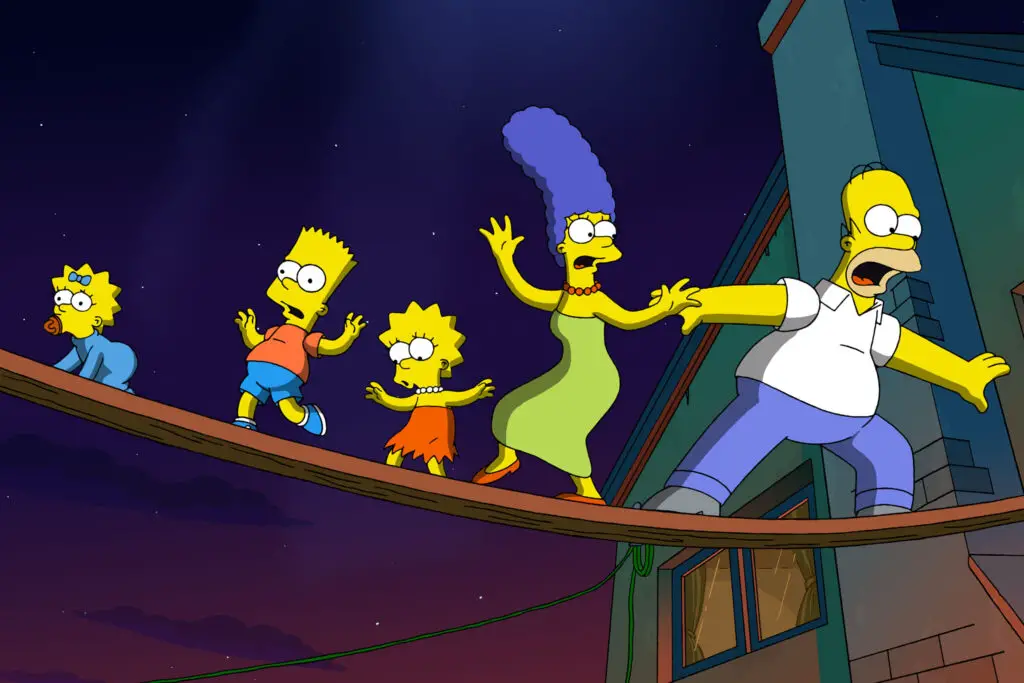
Back in a 1995 episode of The Simpsons titled “Lisa’s Wedding,” Lisa’s fiancé casually speaks into his wristwatch. At the time, it felt like a total sci-fi moment. Who would have guessed that just two decades later, we’d all be chatting with our wrists like it’s the most normal thing in the world?
Of course, when the Apple Watch hit the market in 2015, fans were quick to draw comparisons. It’s not just that the concept was there—they even nailed the voice activation aspect. The episode wasn’t trying to be prophetic, but somehow it landed right on the money says Snopes. It’s a fun reminder of how what sounds like a gag today could be reality tomorrow. And in true Simpsons fashion, this wasn’t the only time they eerily got it right.
2. Star Trek Predicted Cell Phones
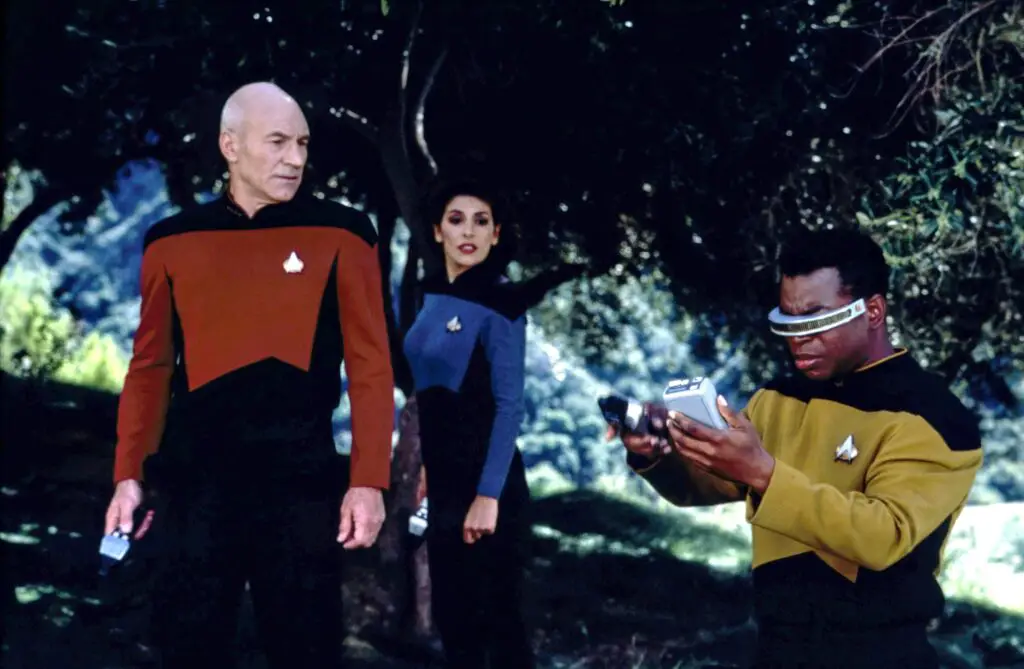
When Captain Kirk flipped open his communicator on Star Trek in the 1960s, no one imagined that decades later we’d be flipping open our own little devices to make calls. The show wasn’t aiming to forecast tech—it just needed cool-looking props. But it ended up inspiring engineers and dreamers alike shares Go2Tutors.
Motorola’s first mobile phone, the DynaTAC, had more than a little resemblance to those Star Trek gadgets. Even Martin Cooper, one of the inventors of the mobile phone, cited the show as an influence. It’s wild to think that what was once futuristic fiction became part of daily life. While today’s smartphones have outpaced those early communicators, the resemblance is still uncanny. Sometimes, the line between fantasy and invention is thinner than we think adds CBC.
3. Friends Predicted Facebook
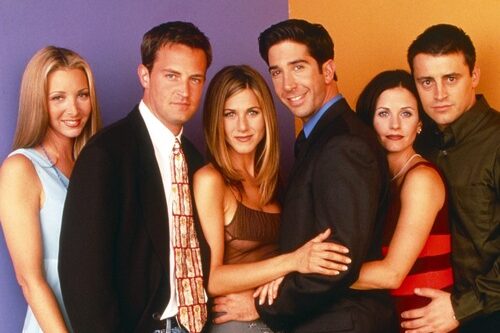
In a 2003 episode of Friends, Chandler suggests that people should have a website where you can look up your friends and see what they’re doing. That was a whole year before Facebook launched—and Chandler wasn’t even trying to be profound. It was just a throwaway line about how hard it is to keep in touch after people move away shares HuffPost.
But fast-forward to the birth of social media and suddenly that offhand comment doesn’t seem so silly. The whole idea of a digital hub to track your friends’ lives is now second nature. Sure, Chandler didn’t name it or code it, but he captured the concept. It’s one of those blink-and-you-miss-it moments that only seems genius in hindsight. Who knew a sitcom about 20-somethings in New York could foreshadow a global tech revolution?
4. Parks and Recreation Predicted the Cubs Winning the World Series
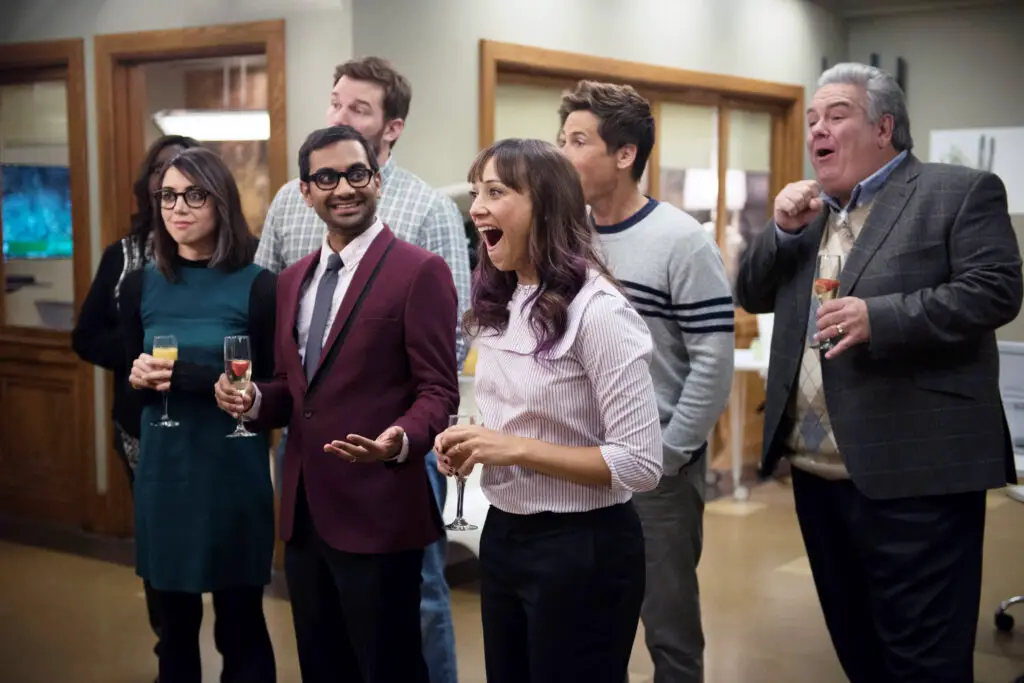
Die-hard Parks and Rec fans might remember when the show jumped forward to the year 2017 and casually mentioned that the Chicago Cubs had won the World Series. That line aired in 2015—when the Cubs were still in the middle of their decades-long championship drought. The writers thought it would be a sweet, hopeful joke.
Then, in 2016, it actually happened. The Cubs broke their 108-year curse and took home the trophy. Fans of the show were stunned, and many couldn’t believe how perfectly the prediction matched reality. It wasn’t even meant to be serious—but the timing couldn’t have been better. Leave it to Parks and Rec to make dreams come true with a single punchline.
5. Black Mirror Predicted Social Credit Systems
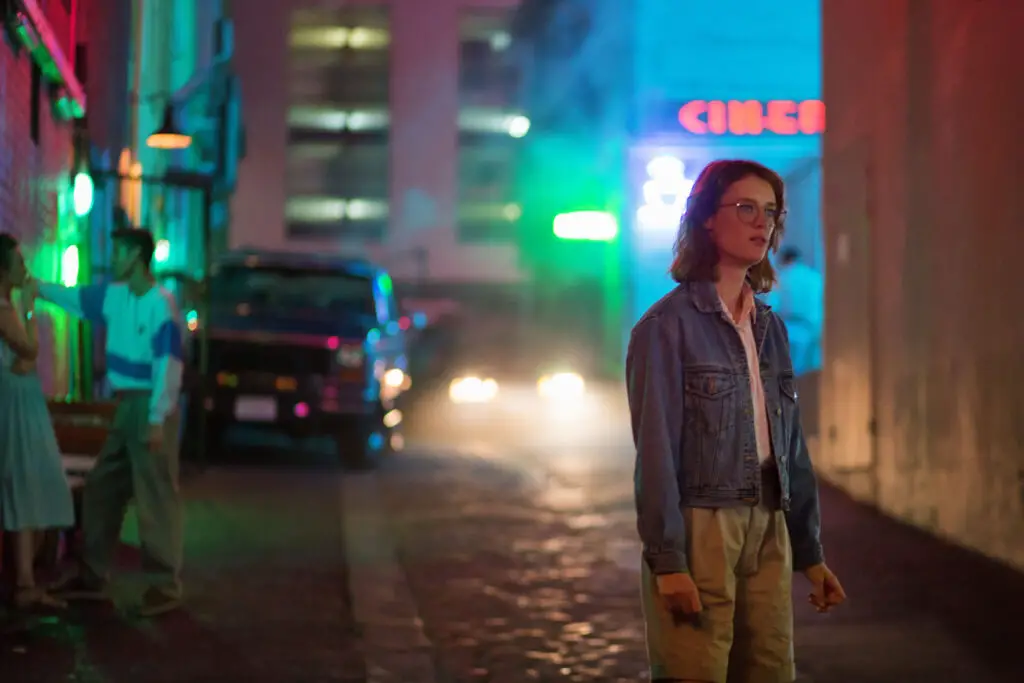
When Black Mirror aired its “Nosedive” episode in 2016, it showed a world where people rate each other on everything—like Uber, but for every interaction. It felt like a warning more than a prophecy. But not long after, reports started coming out about China’s real-life social credit system, which sounded eerily similar.
Citizens could be rewarded or penalized based on behavior, and their scores could affect their access to travel or jobs. The parallels were almost too on the nose. What was meant as a dystopian tale became uncomfortably close to reality. Black Mirror is known for its unsettling tech predictions, but this one hit a little too close to home. It’s like the episode leapt off the screen and into real life.
6. The X-Files Predicted Mass Surveillance
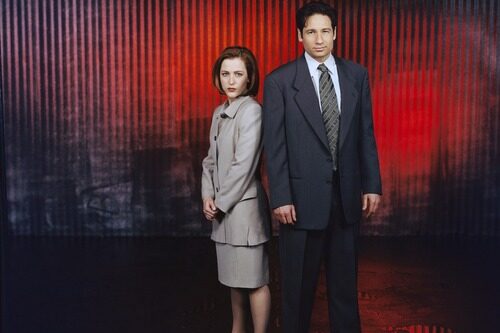
The X-Files always had a knack for tapping into conspiracy theories, but in 2000, it went even deeper with a spin-off episode from The Lone Gunmen. The plot? A government faction tries to hijack a plane and crash it into the World Trade Center. Yes, really—this aired a year before 9/11.
It’s the kind of thing that gives you chills in hindsight. While the motives and details were different, the visual of a commercial plane heading for the towers was hauntingly familiar. After 9/11, fans revisited that episode and were stunned by how closely it mirrored reality. It wasn’t predictive on purpose, but it’s hard not to feel spooked. Sometimes fiction lands in the exact wrong place at the exact wrong time.
7. The Jetsons Predicted Video Calls
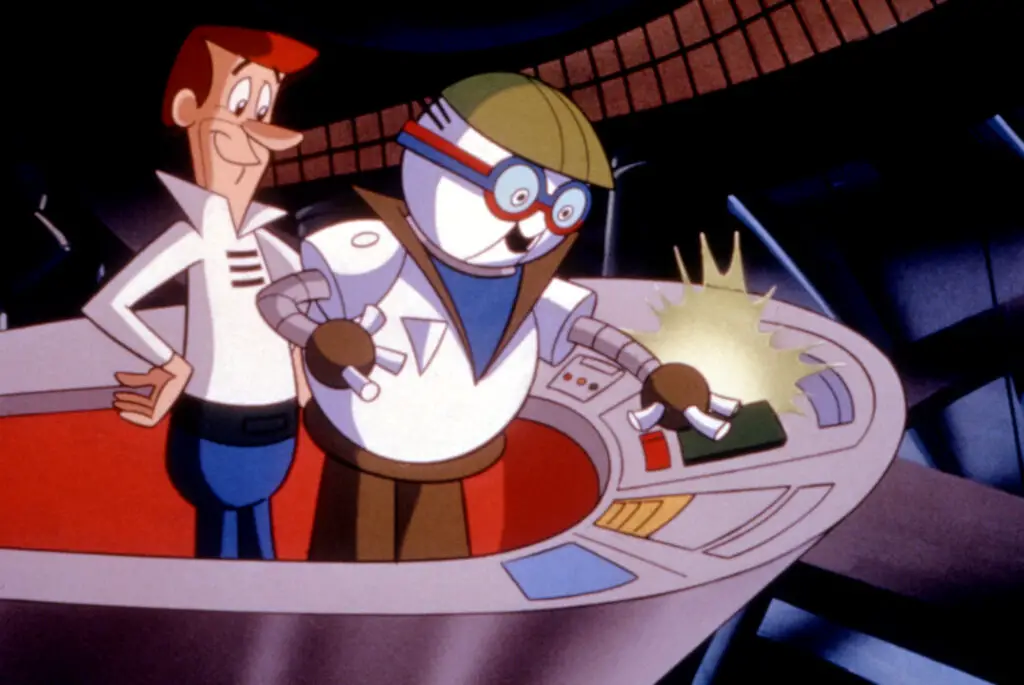
Back in the 1960s, The Jetsons imagined a world where you could talk to someone face-to-face through a screen. At the time, it seemed wild—why not just pick up the phone? But the animated family’s version of the future turned out to be pretty accurate.
Today, video calls are so common we barely think about them. Zoom, FaceTime, Google Meet—we’re practically living in Orbit City. Sure, the hairstyles and flying cars haven’t happened, but the communication tech? Spot on. For a cartoon, The Jetsons got a surprising amount right. It’s proof that sometimes the most outlandish ideas are just waiting for the tech to catch up.
8. Mr. Robot Predicted the Ecoin Craze
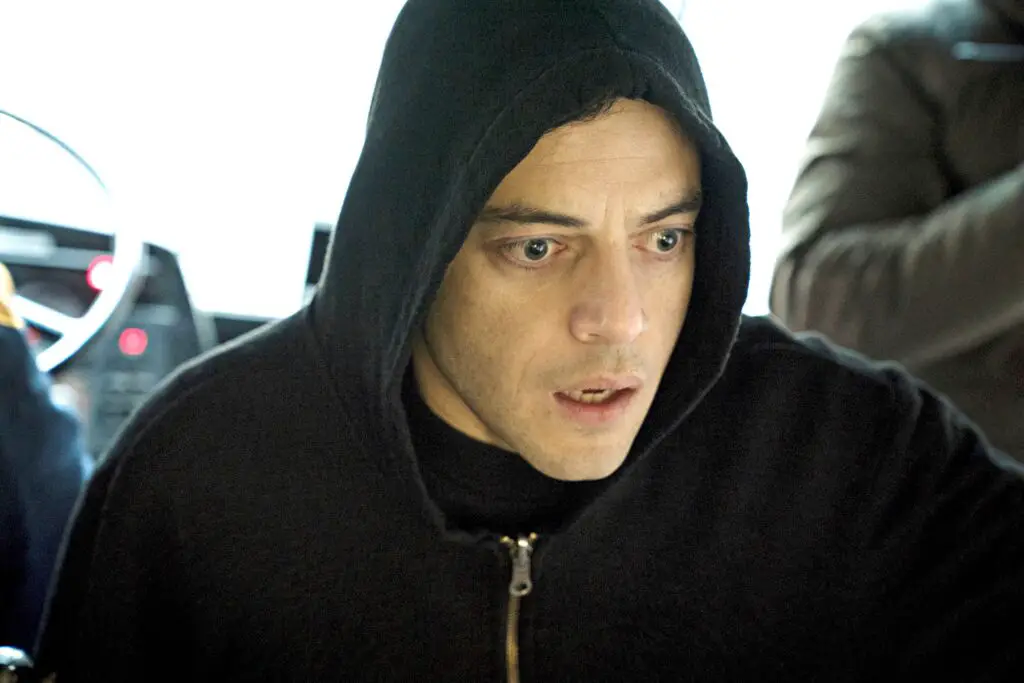
In Mr. Robot, a fictional digital currency called Ecoin was created by a major corporation as a replacement for traditional money. Sound familiar? The show began airing in 2015, right around the time that real-world interest in Bitcoin and other cryptocurrencies began gaining serious traction. But Mr. Robot took it a step further by weaving in corporate and government manipulation.
The eerie thing was how the show anticipated not just the existence of crypto, but the way big players might get involved. Now, with major banks and companies developing their own coins, it’s hard not to see how prescient that storyline was. The show’s creator, Sam Esmail, said he wasn’t trying to predict anything—but just wanted to explore what could happen. And it turns out, he wasn’t far off. Sometimes fiction has better foresight than the markets.
9. 30 Rock Predicted the Rise of Streaming
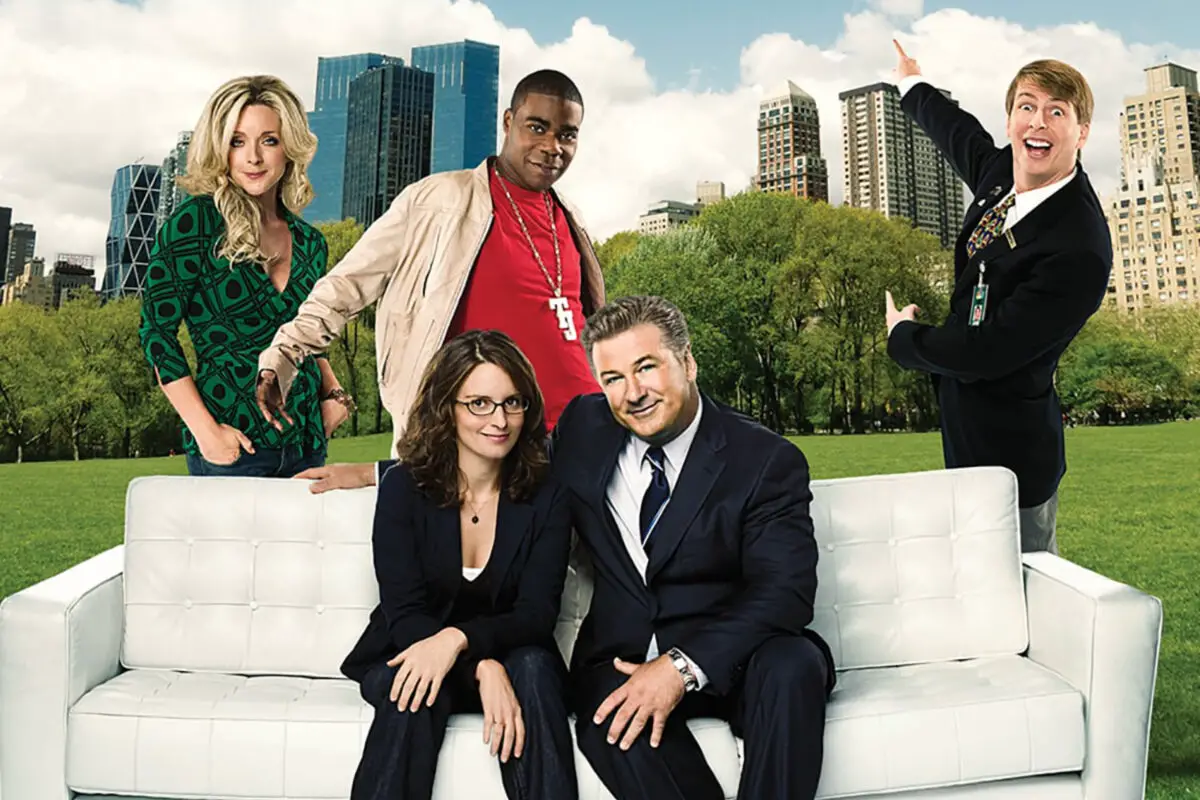
In 2012, 30 Rock jokingly referred to a fictional streaming service called “SeeSo,” where you could watch obscure comedies and old NBC content. It was meant as a jab at the growing trend of niche entertainment. But then, in 2016, NBCUniversal actually launched a real streaming platform called Seeso.
It didn’t last long, but the fact that the joke became reality is still hilarious. 30 Rock always had its finger on the pulse of media trends, and this one hit the nail on the head. Even the name ended up being the same. While the real Seeso didn’t stick around, the idea of targeted streaming platforms sure did. In hindsight, Tina Fey and her team saw the writing on the wall.
10. Scrubs Predicted Zoom Medicine
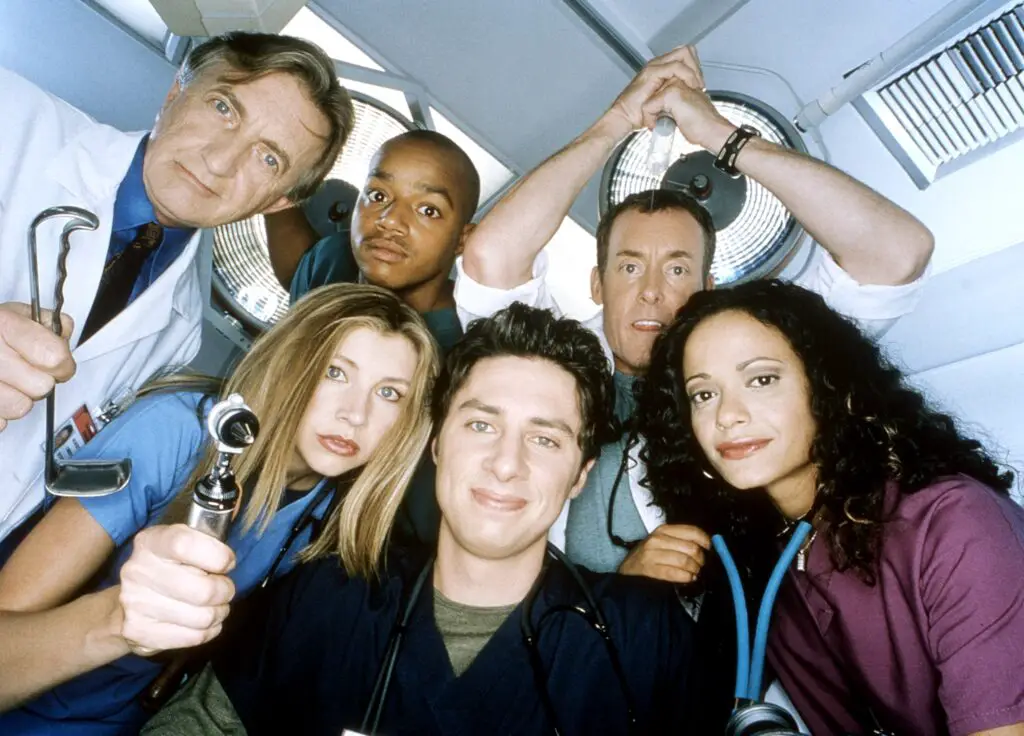
In one memorable episode of Scrubs, Dr. Cox complains about how one day, doctors will diagnose patients over a computer screen. At the time, it seemed like a grumpy exaggeration. But fast-forward to the COVID-19 pandemic, and that’s exactly what happened. Telemedicine exploded practically overnight.
What felt like a far-off possibility became a standard part of healthcare. While Scrubs wasn’t trying to guess the future, it stumbled into it anyway. The moment feels even more relevant now that many people still prefer video visits to in-person checkups. Chalk one up for the fictional Sacred Heart Hospital—they might’ve been onto something.
11. The Office Predicted Alexa
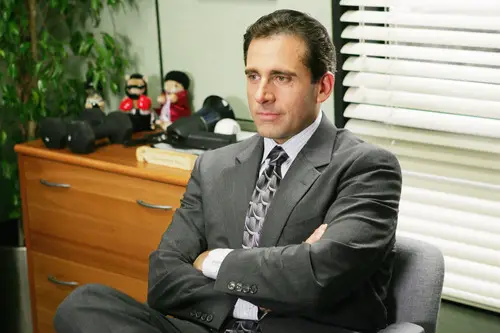
In a 2013 episode of The Office, Dwight Schrute sets up a voice-activated assistant named “Computron.” He talks to it like it’s a real person, giving it commands and expecting snappy responses. At the time, it felt like a parody of futuristic nonsense. But a few years later, Amazon introduced Alexa—and suddenly Computron didn’t seem so silly.
Today, people talk to their devices like it’s second nature. Whether it’s asking about the weather or setting a timer, voice assistants are everywhere. Dwight might’ve taken it a little far, but the concept was there. It’s one of those moments where comedy ends up being closer to real life than anyone intended. Who knew Dunder Mifflin would be so cutting-edge?
12. Fringe Predicted Biometric Passports
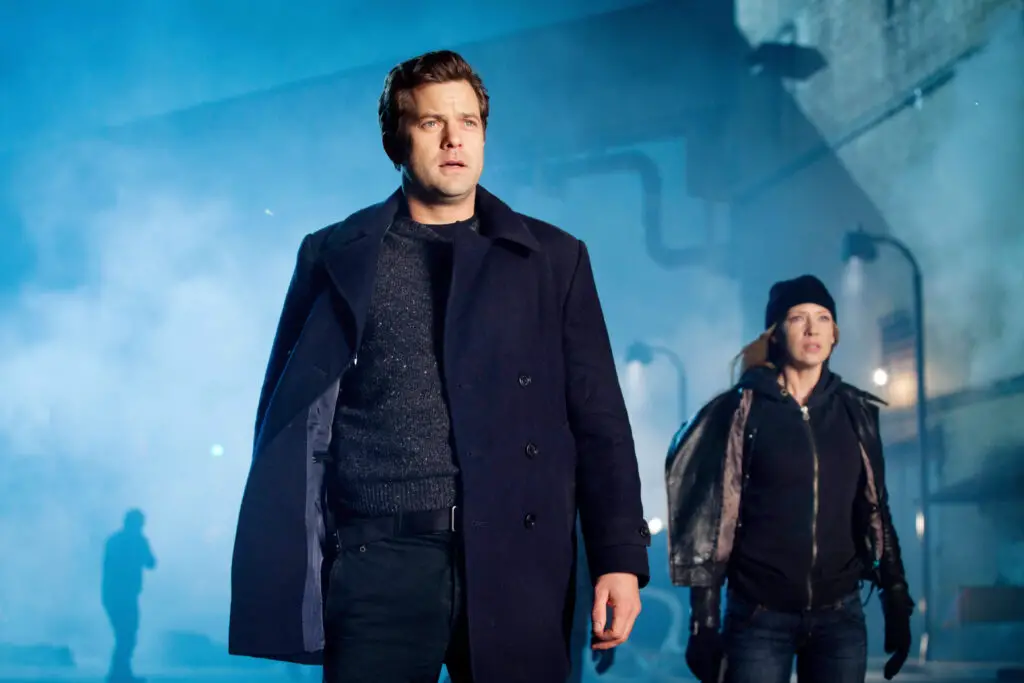
In the early seasons of Fringe, the show’s alternate universe featured citizens using biometric ID to travel between areas. It was a sci-fi twist at the time, blending tech with security in a dystopian way. But not long after, real governments began adopting biometric passports and facial recognition software at airports.
What was once unsettling fiction quickly became part of standard travel. Now, we barely blink when our faces are scanned before boarding a flight. Fringe didn’t invent the idea, but it did paint a clear picture of how it could work. And in many ways, that prediction turned out to be right on target. It’s a little eerie how quickly we caught up to that version of the future.
13. Veep Predicted Political Catchphrases
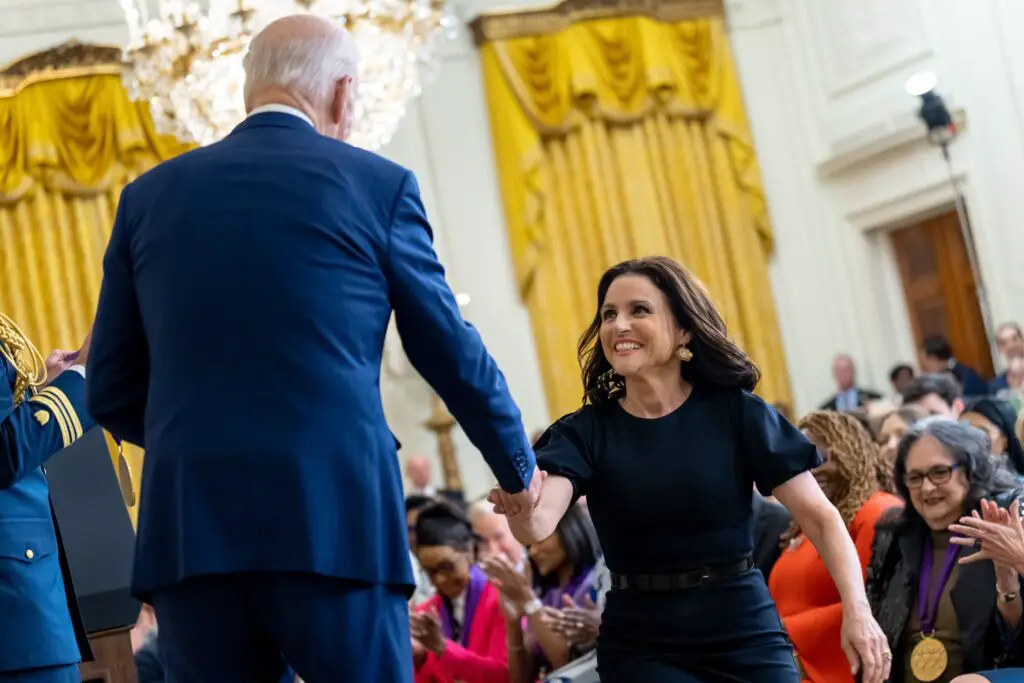
In one episode of Veep, Selina Meyer’s team floats a nonsensical slogan—“Continuity with Change”—as a campaign tagline. It was meant to mock how political messaging often contradicts itself. But then real-life campaigns started using oddly similar slogans, including “Change We Can Believe In” and “Forward Together.”
The timing made Veep feel strangely prescient. Political consultants started pointing out how the show seemed to reflect reality more than satire. When fiction and politics start echoing each other, it’s hard to know which came first. The show might have been parodying real trends, but it also ended up influencing how we think about politics. That’s a rare kind of loop.
14. Community Predicted the Pandemic
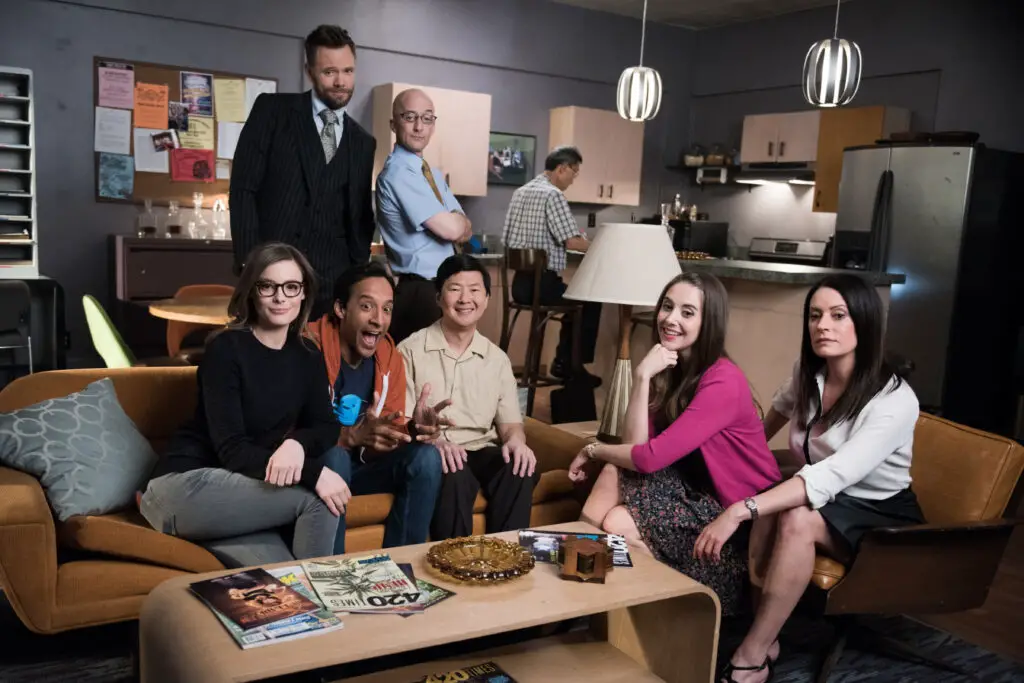
In a 2012 episode of Community, the gang faces an outbreak of a mysterious “cold” that rapidly spreads through Greendale. The school is locked down, chaos erupts, and people panic-buy supplies. At the time, it was just another absurd plotline in a very meta comedy. But watching it after 2020 feels a little too familiar.
The parallels to real-world pandemic behavior are uncanny. From the toilet paper hoarding to the paranoia, it almost plays like a documentary. Fans revisited the episode during lockdown and couldn’t believe how on-the-nose it was. Community might be known for its wacky humor, but in this case, it captured a piece of reality we hadn’t lived yet.
15. Person of Interest Predicted Predictive Policing
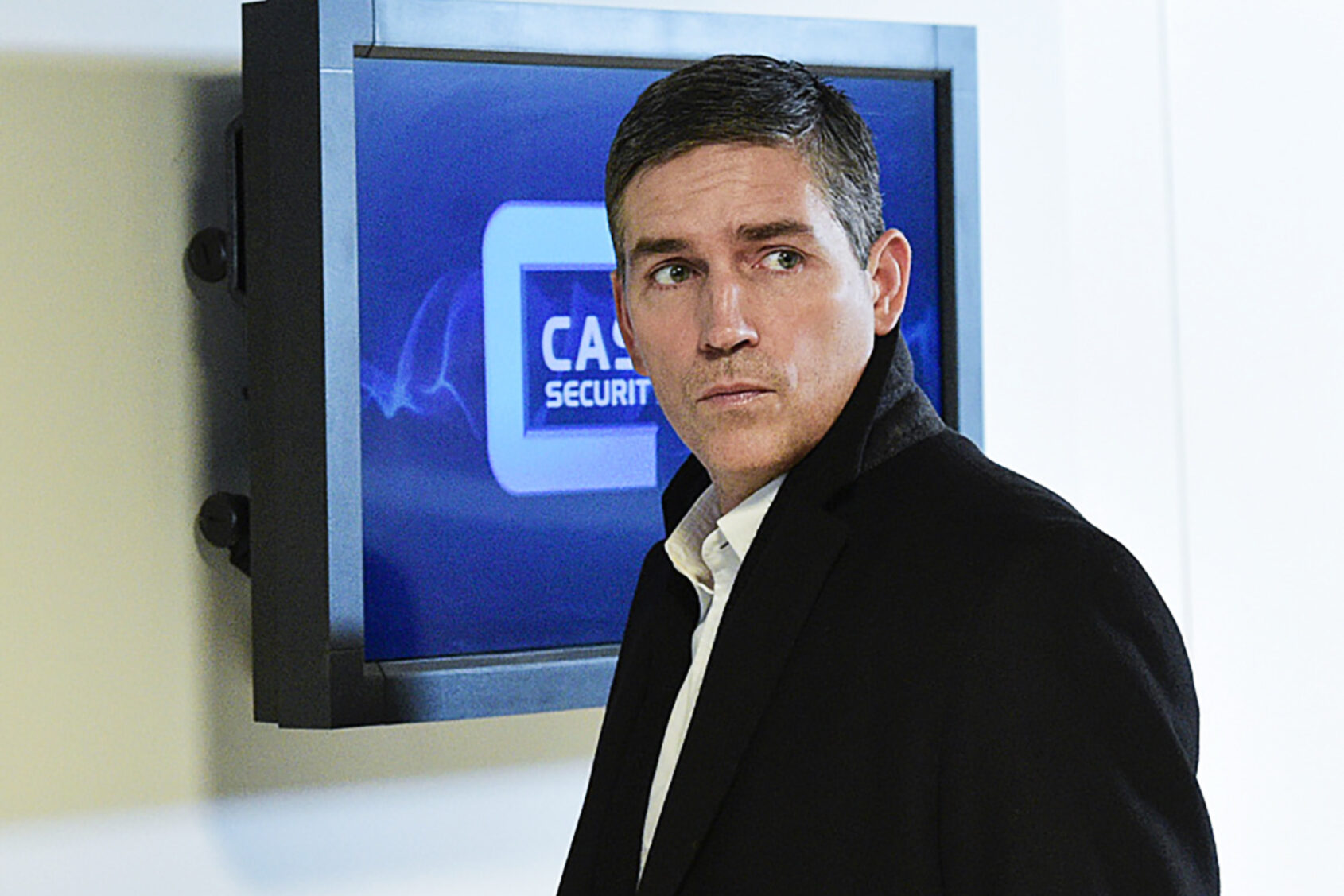
Person of Interest built its entire premise around a machine that could predict crimes before they happened. When it debuted in 2011, that idea felt wildly futuristic. But within a few years, police departments began testing predictive analytics software to try to forecast where crimes might occur.
The ethics of predictive policing quickly became a hot topic, just like the show had explored. It turns out, Person of Interest wasn’t just thrilling TV—it was practically a research paper in disguise. The issues of privacy, accuracy, and bias that the show tackled are the same ones real experts are still grappling with. It’s a case of life imitating art with unnerving precision. Sometimes, all you need is a TV writer with a strong imagination and a few years of patience.
